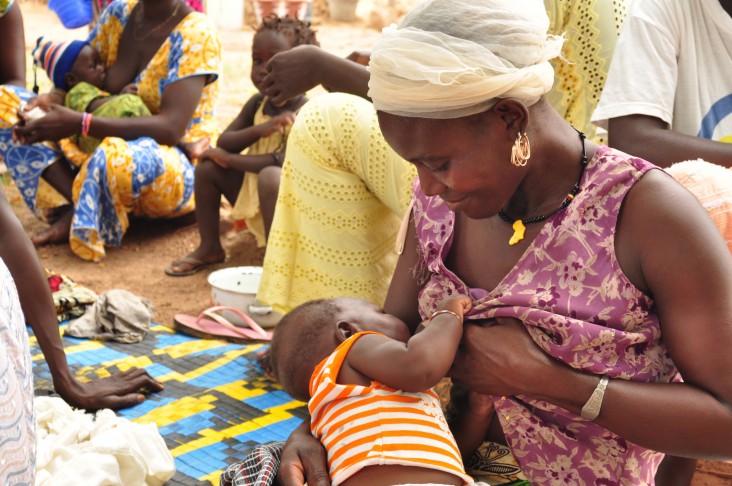
USAID/Senegal works with the Government of Senegal to put quality health services within reach of a growing majority of the population. Since 1979, USAID’s health programs have the supported the Ministry of Health and local communities to reduce maternal mortality and child deaths, prevent infectious diseases and other illnesses, and help people live healthier lives.
Health Systems Strengthening
Health Systems Strengthening is the foundation for all of USAID’s health interventions in Senegal. USAID works closely with the Government of Senegal to build and strengthen the health system at all levels—local, district, regional, and national. Key accomplishments include the establishment of a performance-based financing project in six regions of Senegal, and the expansion of a universal health insurance program based on existing Senegalese community health organizations with the goal of ensuring that three quarters of the population has health insurance by 2017.
President’s Malaria Initiative (PMI)
The President’s Malaria Initiative (PMI) program is the driving force behind the significant decrease in under-five mortality (-55%) over the past eight years, and infant mortality (-17%) over the past four years. As part of its universal coverage campaign, PMI distributed more than a million long-lasting insecticide-treated nets in 2016. In addition, using Senegal’s 2,642 Health Huts as a service delivery platform, PMI trained 1,474 community health workers in malaria diagnosis and treatment. With the significant drop in the number of confirmed cases, Senegal has set a goal of reaching pre-elimination status (less than one case of malaria per 1,000 people at risk annually) in some parts of the country by 2018.
Community Health
USAID’s largest health component is the community health program, which supports all of the country’s community Health Huts. In 2015, 2,085 Health Huts made oral contraceptives available at the community level, while 1,063 Health Huts also offered injectable contraceptive options. Additionally, 1,652 community surveillance committees were created to provide personalized follow-up care to pregnant women and newborns. Health Hut medical staff regularly treat the most common childhood illnesses, such as diarrhea, acute respiratory infections, and malaria before they become life-threatening. USAID also expanded its training program for community health workers (CHW) to strengthen their skills in neonatal and delivery services. In 2015, trained CHWs provided essential newborn care to 18,336 babies and conducted postnatal visits for 54,530 mothers.
Service Delivery
Closely linked to USAID’s community health efforts is the service delivery component, which seeks to increase the quality and availability of services throughout the health system. This approach focuses on providing an integrated package of services consisting of family planning, safe motherhood, and child health, which are now available at all health care points of service. The service delivery program also provides continuous, on-site training to identify and respond to needs in equipment, commodities, and management using the “Tutorat-Plus” approach, which provides professional training based on specifically-identified needs. In 2015, 186 public and private health facilities participated in Tutorat-Plus.
HIV/AIDS
Although Senegal’s low prevalence of HIV among the general population (0.7%) is exceptional in sub-Saharan Africa, pockets of higher HIV prevalence and risk remain, particularly among sex-workers and men who have sex with men. In 2015, USAID supported the Ministry of Health in providing antiretroviral therapy to 8,368 people living with HIV/AIDS and provided HIV counseling and testing services to 19,777 individuals.
Health Promotion and Behavior Change
Health promotion and behavior change is the overarching “umbrella” of the Health program. In 2015 (using social media, billboards, television and radio advertisements, talk-shows, and group information sessions) the health promotion program supported the sale of more than 5.4 million condoms, 8,000 doses of injectable contraceptives, 432,000 packages of oral contraceptives, and enough tablets to sanitize more than 124 million liters of water. This component, managed by a Senegalese organization, reflects USAID/Senegal’s commitment to building local capacity.







Comment
Make a general inquiry or suggest an improvement.